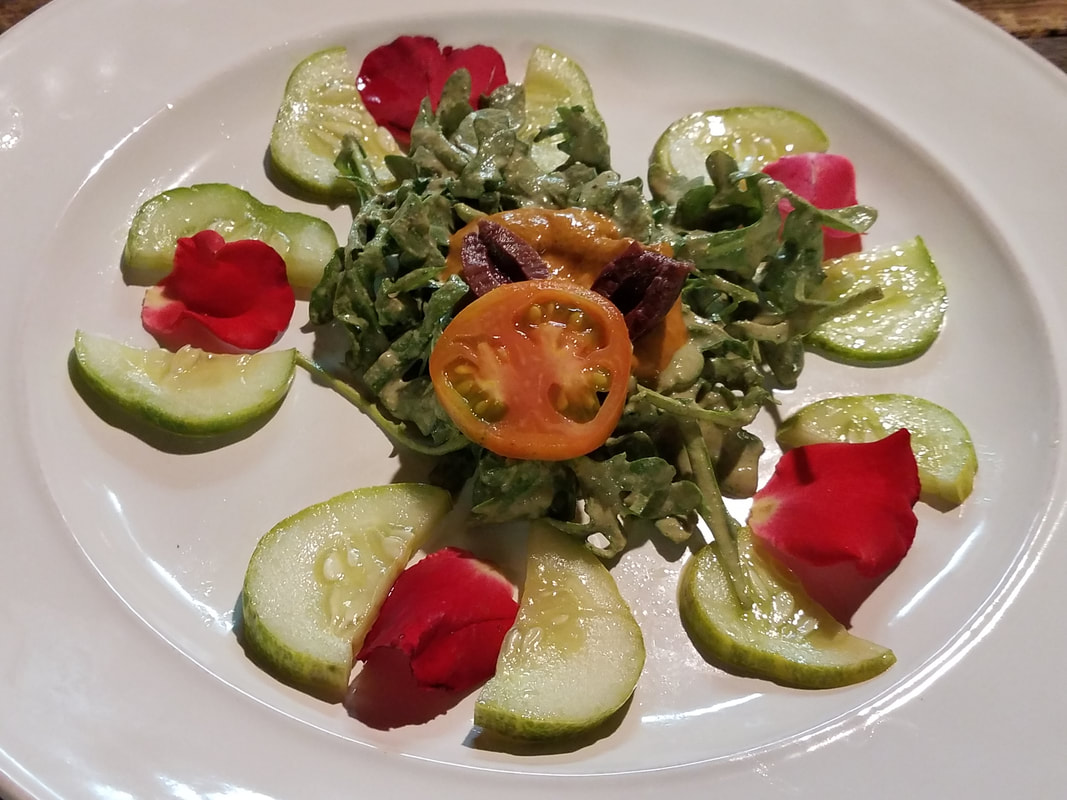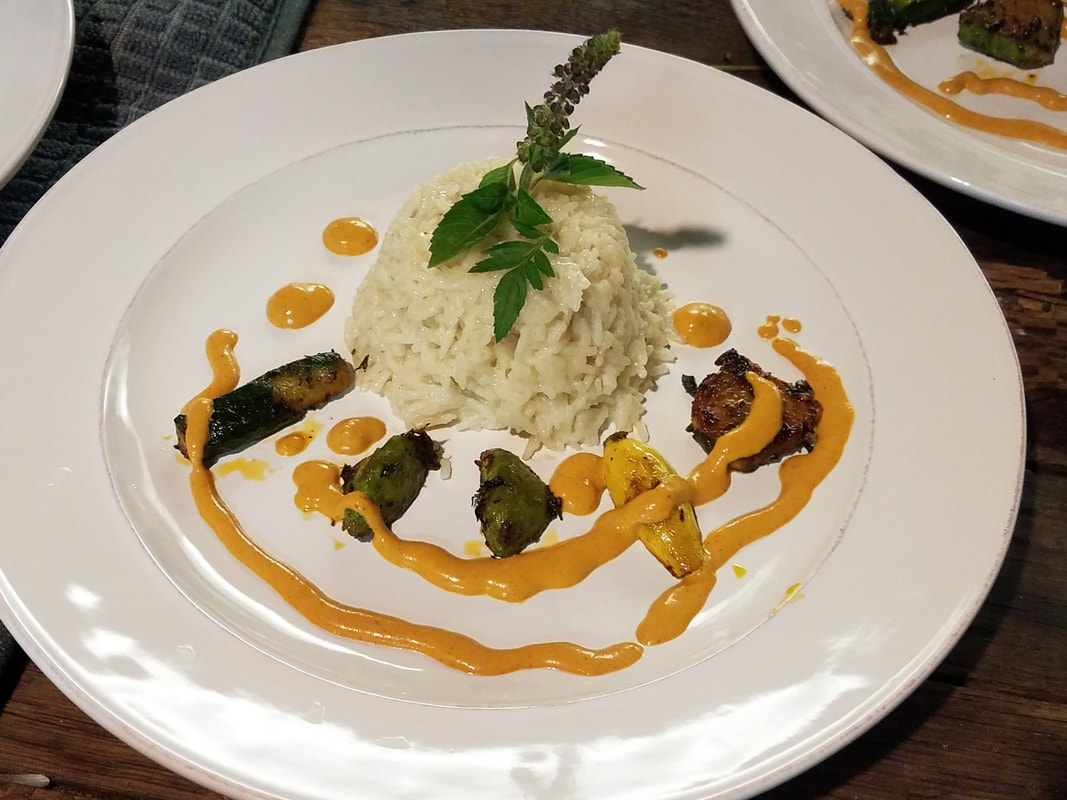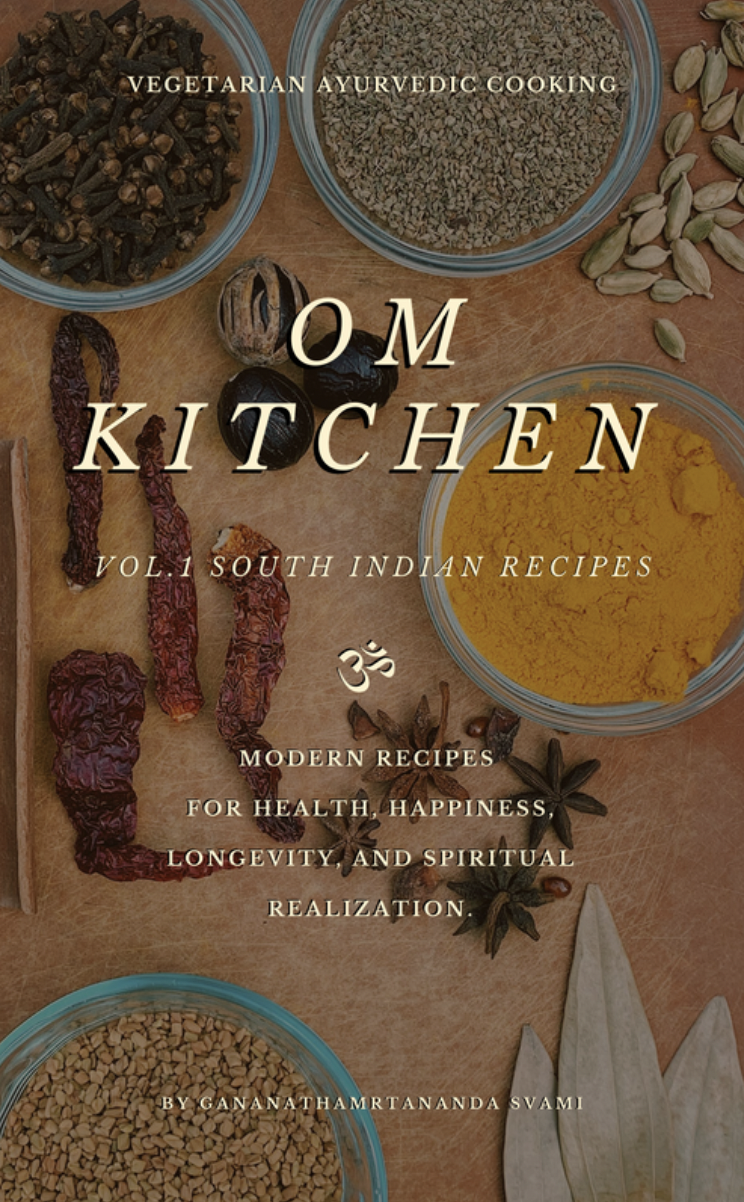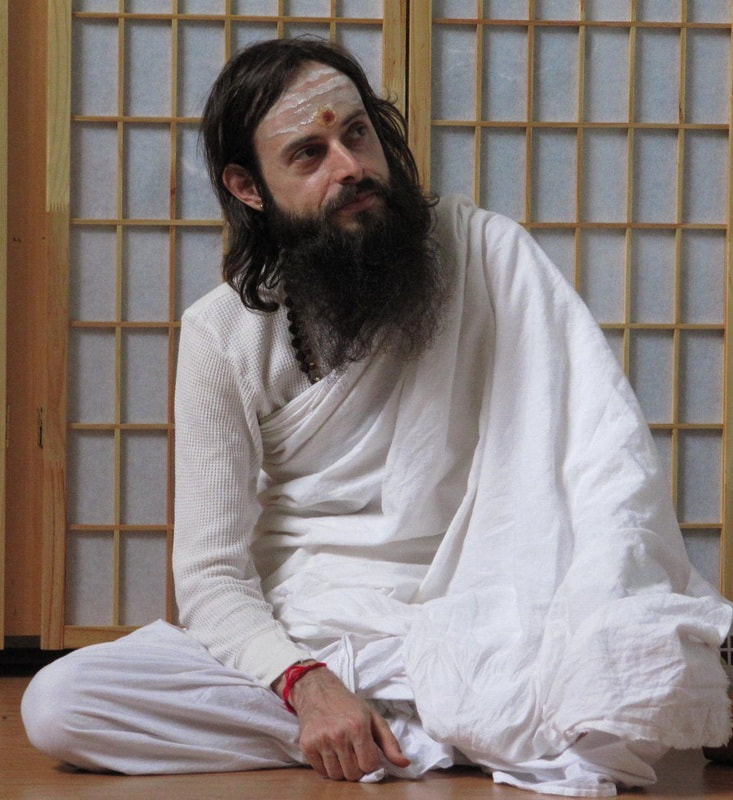|
"Many people have the misconception that fresh, healthy, vegetarian food tastes bad. In fact, the vegetarian cuisine can be quite sophisticated and satisfying. Fresh, natural, local ingredients are favored by the best chefs in the world for the culinary masterpieces they create. Such ingredients are not only better for our health, but they improve the flavor of our meals also.”
- Gananathamritananda Giri |
Eating a vegetarian diet is one of the best ways we can reduce waste, and minimize harm to living beings and the environment and is considered basic to spiritual practice. For there to be any true spiritual realization, the mind must be pure. One of the best ways spiritual seekers can bring about mental purity is by eating a vegetarian diet. Adopting a vegetarian diet is considered the first step for the practice of Yoga. The practice of Yoga consists of eight consecutive steps for the practice. The first step is called yama, and is a group of restraints. It is stated that these restraints must be implemented before it could be expected that any of the subsequent practices of Yoga will have an effect. The first and foremost yama is ahimsa, non-violence. The practice involves minimizing harm to others including nature and all living beings so much as possible. This not only the principle practice of Yoga, but also the highest and most crucial moral standard of the Hindu traditions in general. It is traditionally practiced by abstaining from meat, poultry, fish, seafood and eggs. Many spiritual traditions throughout the world have recommended a strict vegetarian diet for the same reasons, and most world cultures have eaten a largely vegetarian diet until very recently. We encourage all sincere spiritual seekers and all who wish to reduce suffering and minimize harm to the environment to switch to a vegetarian diet. If everyone in America simply ate a vegetarian diet one day a week, the impact would be significant. The world would be a better place for us all to live in.
|
Explore More Reasons for Vegetarianism
| animal_products.pdf | |
| File Size: | 63 kb |
| File Type: | |
Vegetarian Cookbooks
Learn to cook Vegetarian Ayurvedic Meals at Home with Swamiji
|
OM KITCHEN VOL. 1 SOUTH INDIAN RECIPES
To help inspire people to eat healthier foods, to cook more, and to incorporate more vegetarian recipes into their repertoire, we are releasing a series of Vegetarian cookbooks. The dishes have been created from Swamiji's vast knowledge of the culinary arts according to the dietary principles of Ayurveda. We have published our first cook book of South Indian style recipes as an ebook. We are working now to publish printed copies also which will be available through the website, in book stores, and on Amazon.
Buy or Preview our First Cookbook |
Meet the Master and Chef
Gaṇanāthāmṛtānanda Svāmī aka SwamijiSwamiji Gananath Amritananda has drawn inspiration in creating nourishing vegetarian recipes from his vast knowledge of herbs and spices gathered in his years of experience culinary work and his practice as an Ayurvedic Herbalist. A talented chef, Swamiji received training in Culinary Arts from Johnson and Wales University, in Norfolk Virginia. At this time, he was deeply interested in exploring various world cuisines and their use of herbs, spices, and seasonings in particular. He had studied the fine arts and drawing and painting in particular, so it was natural for him to focus upon the aesthetics of cooking and to view the culinary arts as fine art. After his culinary education, he worked in restaurants for several years before commencing his studies of Ayurvedic Medicine. Inspired by a desire to help and serve people, he studied Ayurveda at Dhanvantari Ayurveda Center under the guidance of Vijaya Stallings. He has vast knowledge and experience of hundreds of Indian Ayurvedic herbs, Western herbs, and native Virginia herbs. Swamiji has practiced Ayurveda, assisting clients with a full range of health concerns for over 15 years and has taught Ayurveda classes and certification courses. He had published an Ayurvedic cookbook of South Indian recipes and is working on another Ayurvedic cookbook as well as a book about the traditional Ayurvedic herbal formulations. Swamiji is a practitioner and teacher of Yoga and Meditation and has profound experiential knowledge of the nature of the mind and the effects of herbs upon consciousness. He spends most of his time, teaching students about meditation, Ayurveda, and the traditional practices of Yoga. In his free time he enjoys meditating, walking in nature, gardening, drawing, and cooking with herbs.
|




